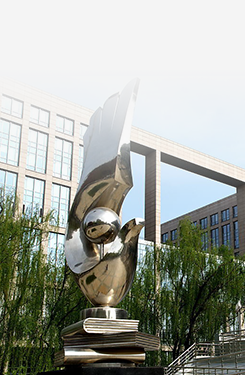Title: Quantifying the demand and impacts of the high-speed railway
Presenter: Doctor Zhang Fangni
Time:2019.9.11 3:00-4:30
Location:A716
Abstract:The rapid development of high-speed rail (HSR) around the world, especially in China, has revitalized the
railway industry while posing considerable challenges for transport management. This talk will discuss some recent research advances in HSR demand modeling and
economic impact quantifications. In the first part, we will talk aboutthe modeling and estimation of HSRdemand distribution based on ticket booking records in the
Railway Ticketing System (e.g., 12306). Methodsthatestimate the possible desired departure time period (PDDTP) for each trip, and hence the aggregate demand distribution, will be discussed. The second part of this talk will present some econometric studies that quantify the multi-fold impact of HSR on regional location endowment (evaluated by accessibility and connectivity), on economic growth,and on other substitutional and complementary transport modes. The results expect to shed lights on the large-scale HSR network modeling,transport infrastructure planning, and multi-modal transport system management.
About the presenter:Dr. Fangni Zhang isanAssistant Professor at the School of Aviation at University of New South Wales (UNSW) Sydney. Prior to joining UNSW, she was an Assistant Professorat the Institute for Transport Studies at University of Leeds in 2017-2018 and a Research Associateat the Centre for Transport Studies at Imperial College London in 2016-2017. Dr. Zhang received her PhD degree in Transportation from Hong Kong University of Science and Technology and her Bachelor’s degree in Industrial Engineering from Beihang University. Dr. Zhang is keen to extend the application of her knowledge and expertise beyond the aviation industry and to include other modes of transportation, such as railway, road, and other mobility services. Her current research covers a wide range of fundamental or emerging issues in transport, including high-speed rail network modeling and impact quantification, multimodal system modeling and optimization, and shared/automated transport management. Her research draws tools from different disciplines such as network modeling, economic theory, traffic flow theory, operations research,and data science to transport research. Her research often appearsin leading national and international journals and conferences in the field of transportation, such as Transportation Research Part A/B/C/D/E.

